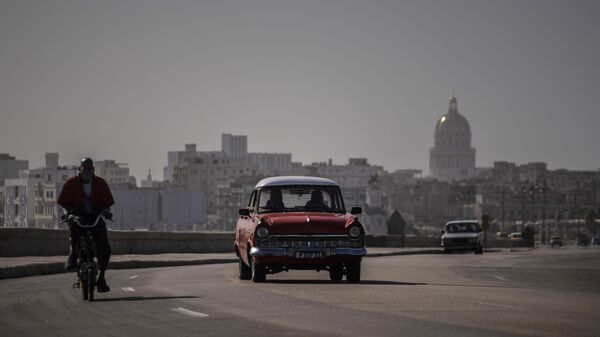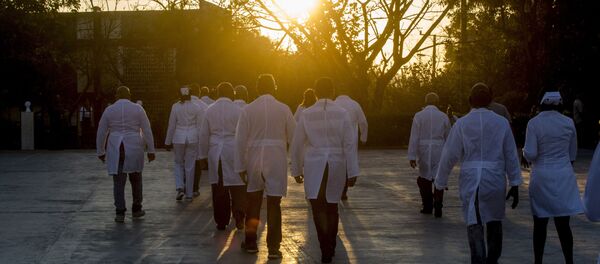Cuba has moved to repeal a 10 percent tax on payments in US dollars, and broadened the variety of goods which can be bought with the US currency in an effort to improve the economic situation in the country, Granma has reported.
The measure, set to step into force on July 20, is part of a broader package of measures announced by Economy Minister Alejandro Gil Fernandez to deal with an “exceptional situation” brought on by the intensification of the US economic blockade against the communist country and falling tourism revenues thanks to the coronavirus. The minister promised that the decision “will benefit all Cubans, both inside and outside Cuba.”
Cuba first legalized the use of dollars in 1993, amid the economic crisis brought on by the collapse of the USSR and the loss of trade ties with the former socialist bloc. In 2004, US sanctions threats against foreign banks doing business with the island nation prompted Havana to introduce a 10 percent tax on dollars, and to ban their use in state stores, replacing them with a convertible Cuban peso known as the CUC.
Restrictions on the greenback’s use were lifted in 2019 in the face of financial and balance of payments difficulties caused by renewed pressure from Washington, with the state attempting to reduce informal flight of foreign currencies by allowing the sale of certain big-ticket items in dollars such as cars and refrigerators in state stores using bank cards. The measures announced this week are expected to broaden the range of goods available for purchase in dollars to include food, personal hygiene items, and more.
President Miguel Diaz-Canel promised that the new measures are “oriented at strengthening us, not just to stay afloat but also get ahead and develop.”
“We have to get accustomed to living with fewer imports and more exports, by promoting national production to meet internal demand and enhancing the role of local governments,” he said, speaking at a Council of Ministers meeting on Thursday.
Earlier this year, Cuba appealed to the United Nations for all sanctions against the country to be lifted amid the coronavirus crisis, which has led to a dramatic reduction in the country’s earnings from tourism. The country partially reopened its tourism sector starting July 1.
As of this week, the Caribbean nation has reported a total of about 2,450 COVID-19 cases, and 87 deaths.



